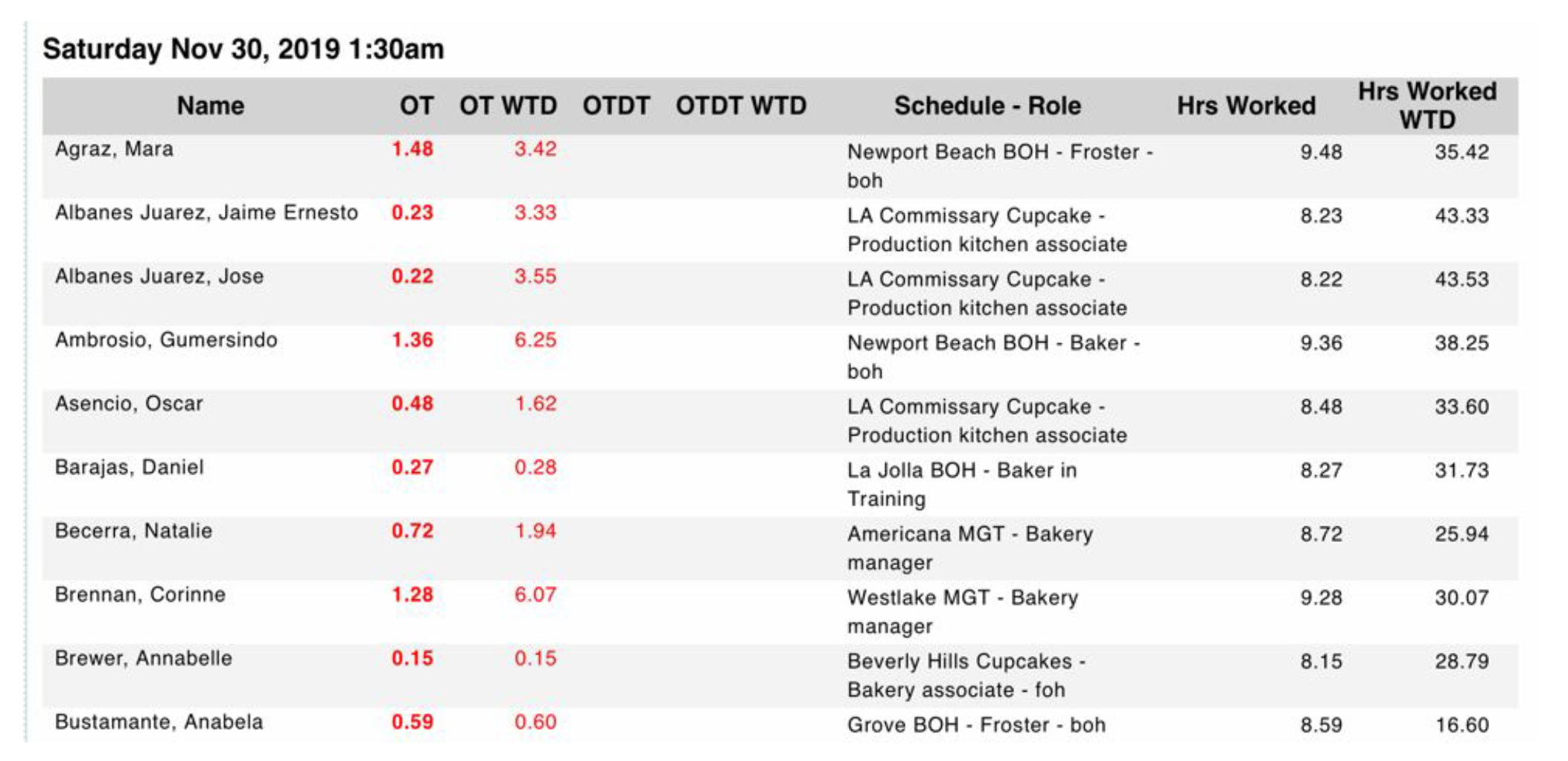Break Compliance
Teamwork tracks and helps to control Meal Break and Rest Break compliance.
Informing Break Start Time: Using California as an example, Teamwork advises the employee upon clock-in when the required 30-minute break must begin by (i.e. end of the 5th hour). Alerts can also be sent advising of approaching break start.


Teamwork tracks a Meal Break as an event outside of regular start / end of shift, which allows enforcement and tracking opportunities:

Enforcing full break duration: Early return from a required 30-minute break can be blocked. In the following example, the employee is prevented from returning from break

Validating Rest and Discretionary Breaks: Upon clock-out, employees Validate their time punch, and can attest to other break related questions
- Teamwork will prompt for verifications that required Rest Breaks have been made available.
- If certain Breaks are discretionary (ie California shift length between 5-6 hours), a prompt is provided to waive.
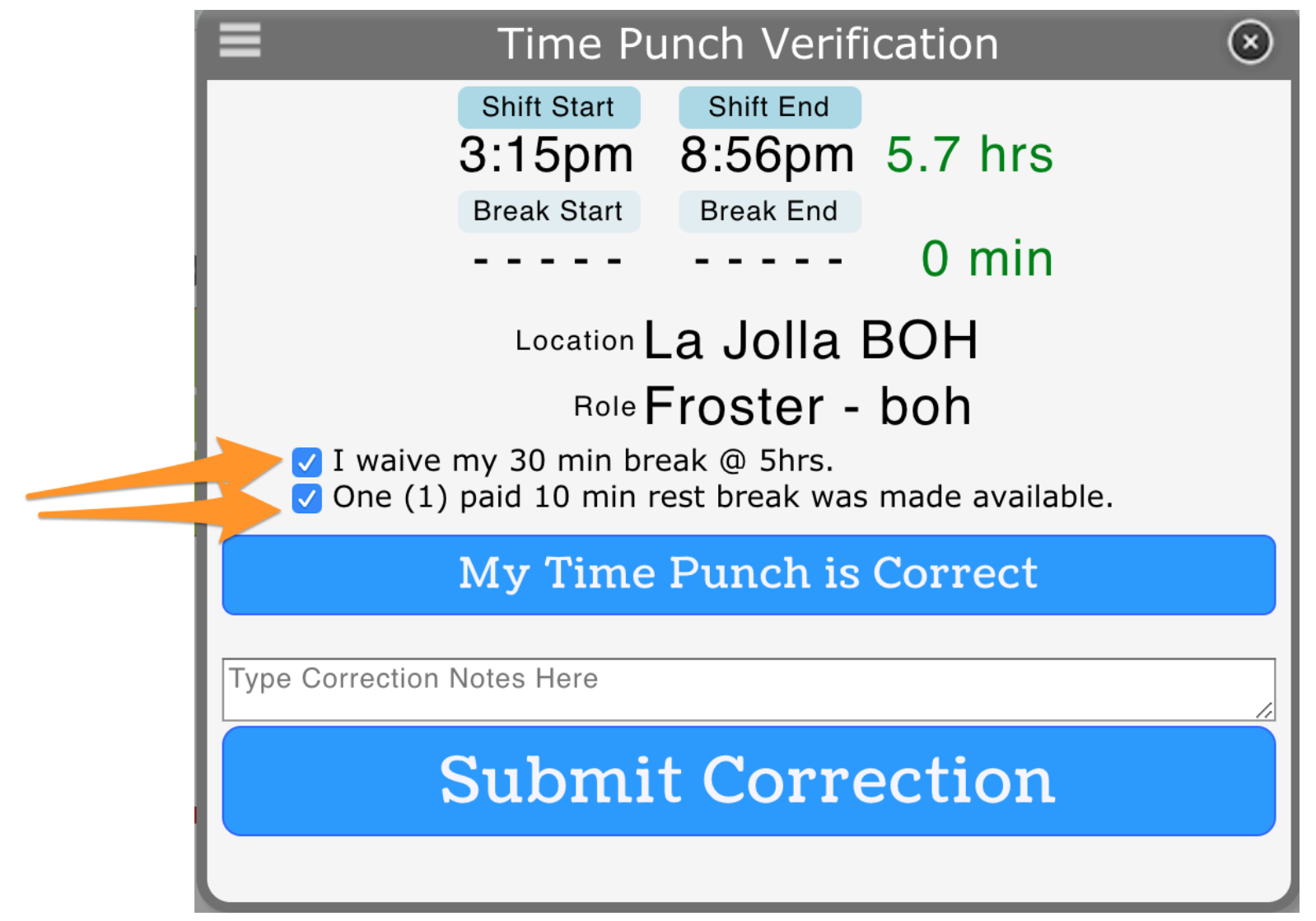
Alternatively, Rest Breaks can be specifically tracked through the use of a Rest Break clock-in/out buttons

Correcting negative compliance behavior: Teamwork can be set to prompt for manager sign-off when a labor violation exists, at the time an employee clocks out.

Break Waivers: Waivers for discretionary breaks can be entered globally or per employee.
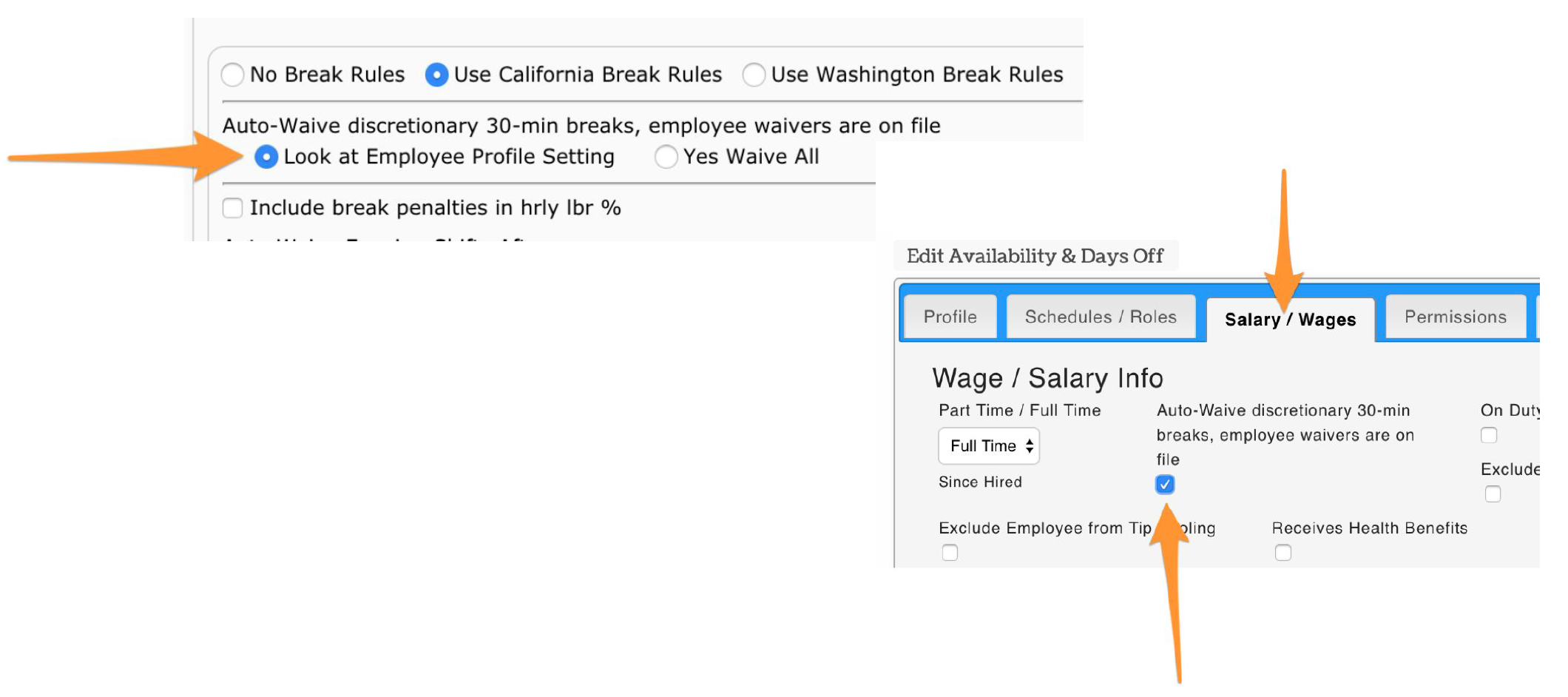
Reporting of Break Violations and Payroll Reporting
Schedule View: Managers are able to spot violations from the schedule / time-punch view.

Time Card Summary View: Managers can view time punches with break data, and violation / validation statuses. Employees can likewise view their time card summaries, and dialogue with employer. Dialogue remain tied to the audit history of the punch.
NOTE: Spreadsheet summaries report archival data for any date range.
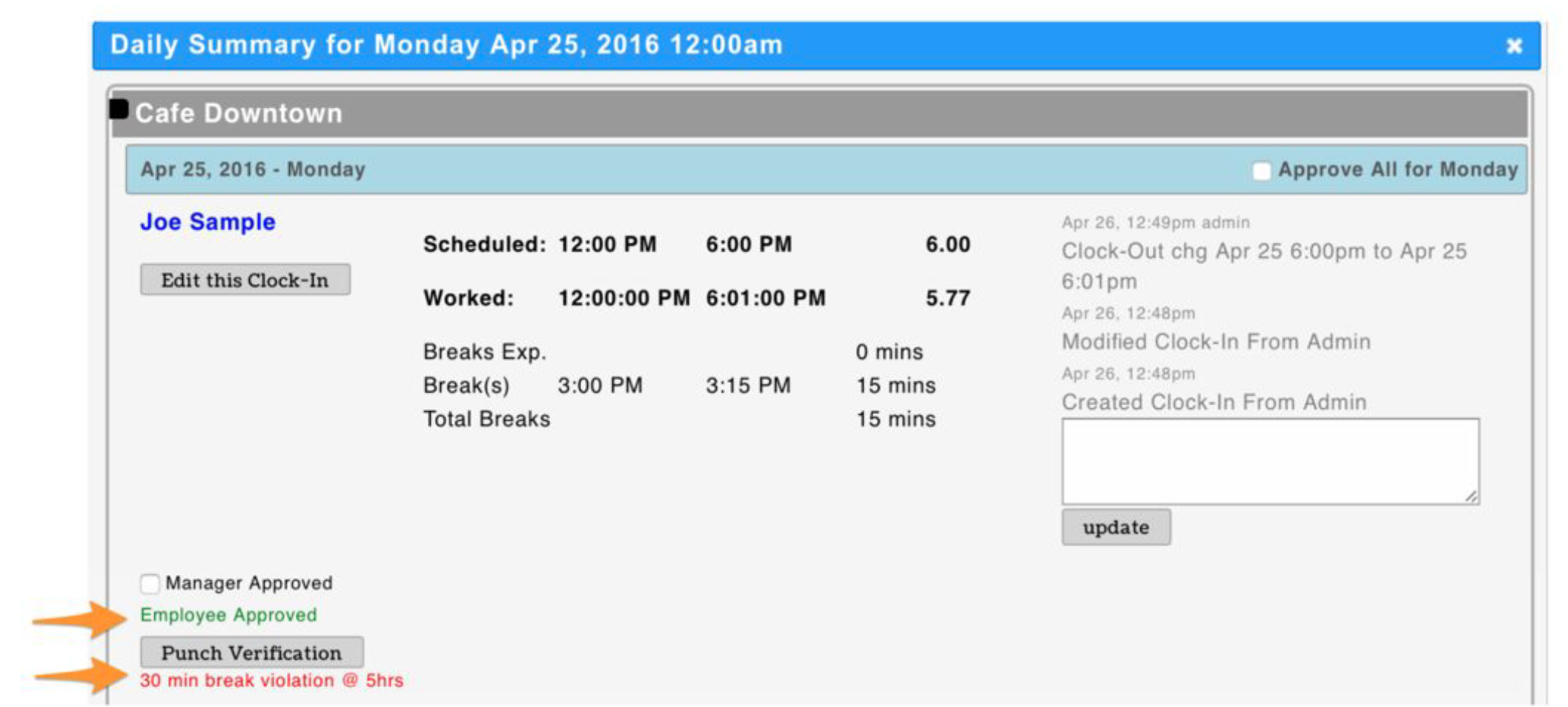
Report / Email-Report: A break violation report is emailed nightly to admin, and can be run manually for any employee over any date range.
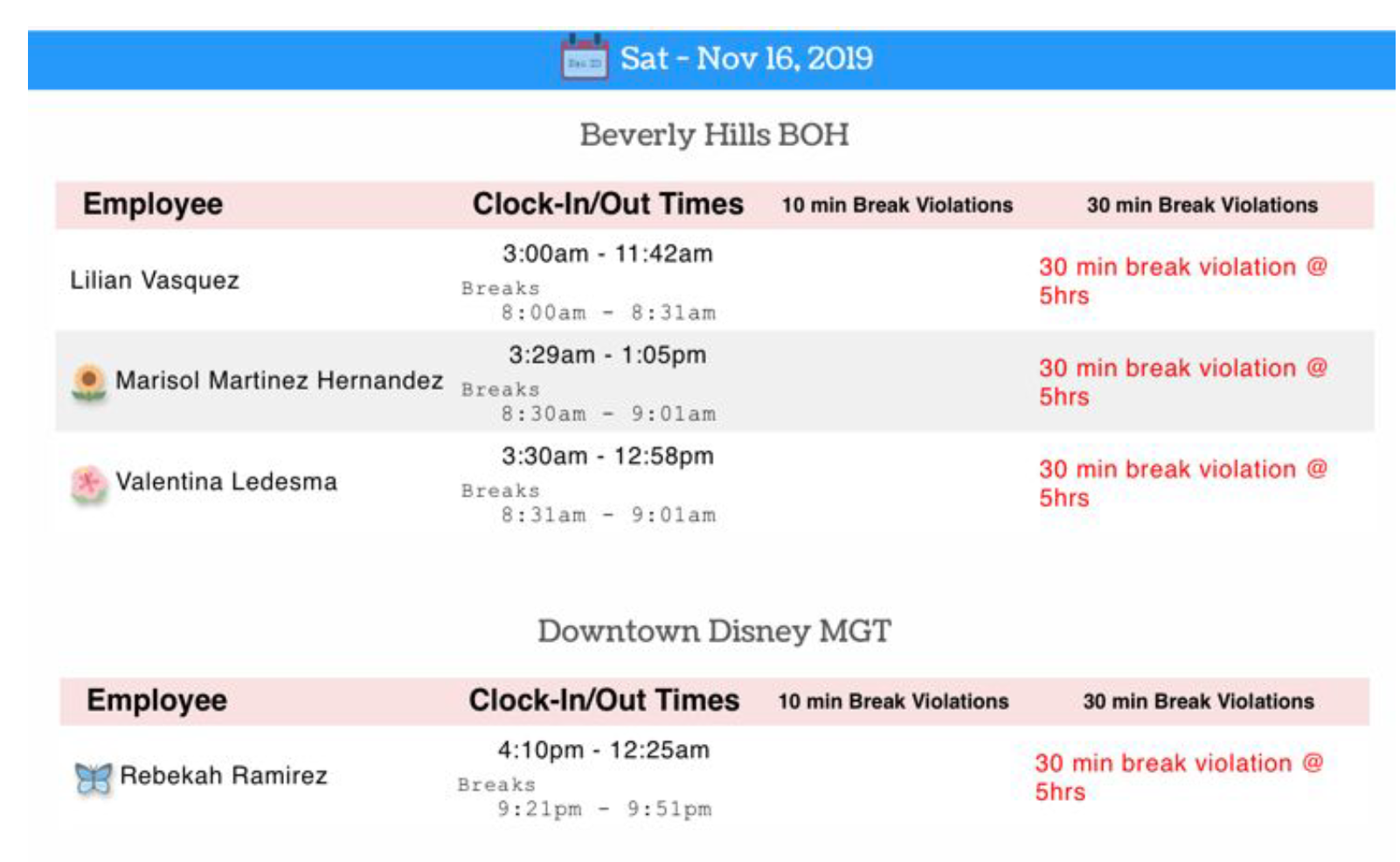
Payroll: Break violations and state-specific penalties are applied to payroll reporting, and mapped to designated payroll codes. Process requires no manual computations or entry.
Time Punch Validation and Re-Validation
Employees validate time punches at clock-out. If a manager edits any component of the time punch, it becomes invalidated.
Re-Validation: Employees can re-validate punches from their dashboard or mobile
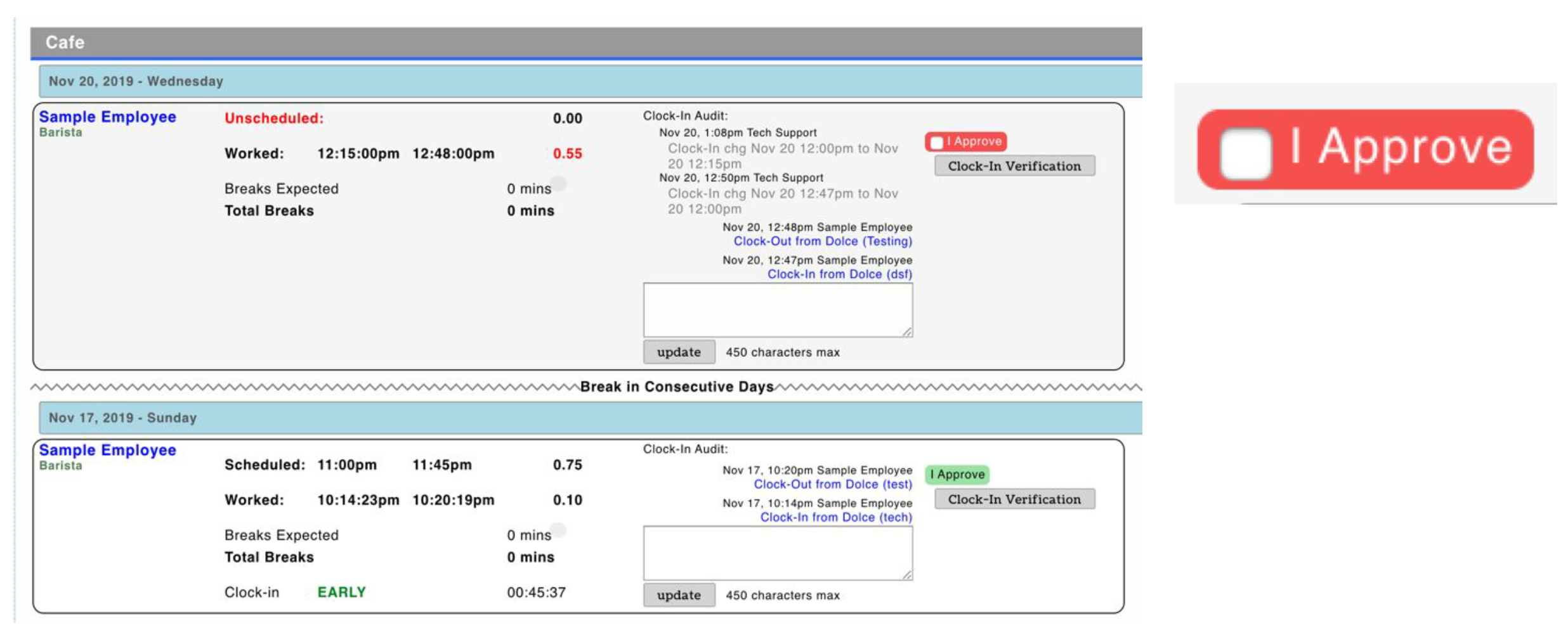
Re-Validation on Clock-In: Employees will be prompted upon clock-in for a shift to validation any unvalidated time punches.
Split Shift Premium
Split Shift Defined: Workers who earn the minimum wage per hour are entitled to additional pay known as a “split shift premium” when their schedule includes a split shift. Any money earned over and above the state, or local, minimum wage will be credited towards the employer’s obligation to pay the split shift premium.
Determining Employer or Employee Benefit:
- Split Shift penalties are applied solely in instances where split shifts are created for the benefit of the employer.
- In the punch validation (at clock-out), the employee is prompted to state the beneficiary of the Split Shift:
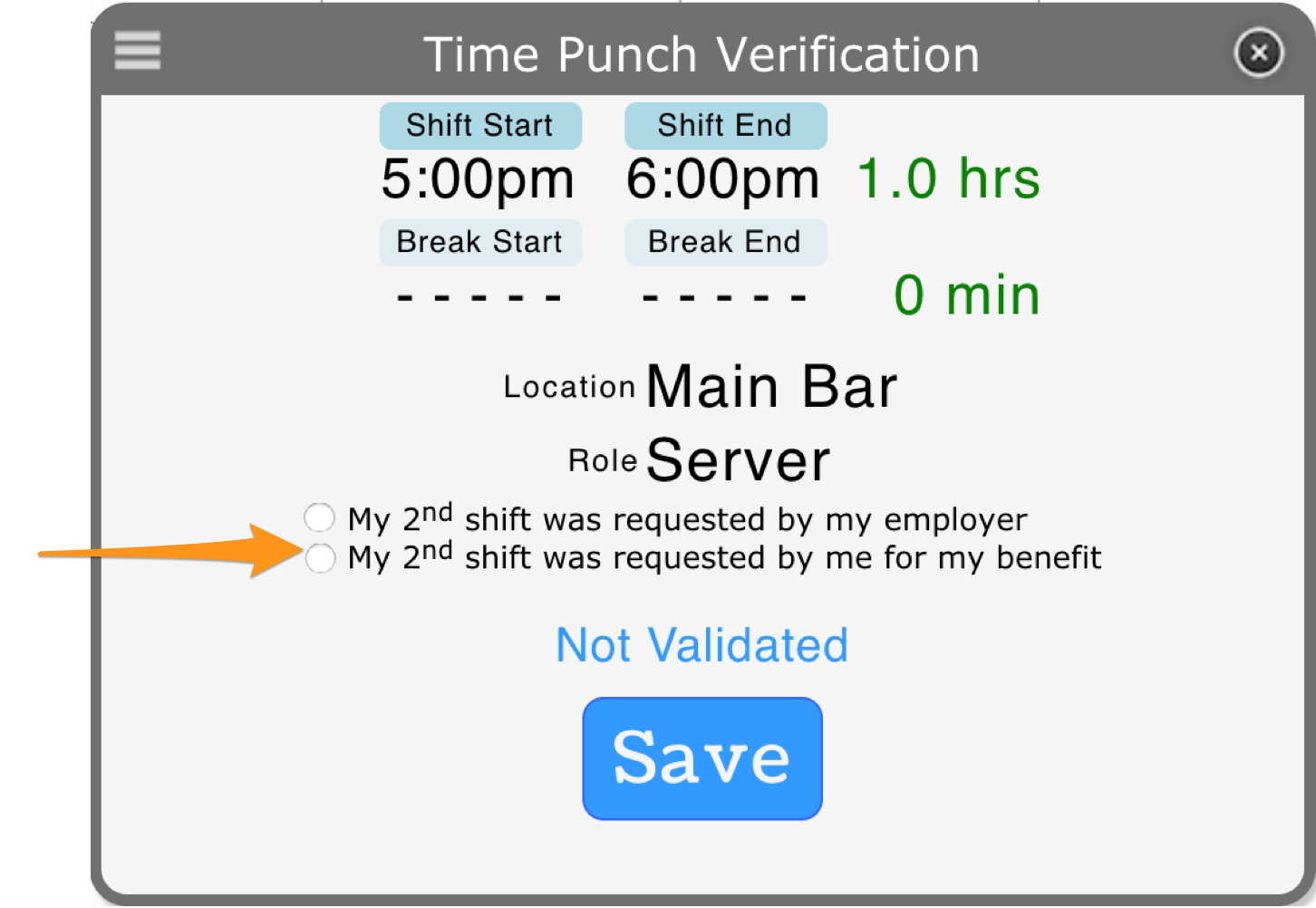 Split Shift Premiums in Payroll:
Split Shift Premiums in Payroll:
- Split Shift Premiums are automatically calculated and show in the payroll report, and can flow into applicable payroll integrations and custom payroll exports.
- Split Shifts can be tracked and calculated across multiple wages and locations.

- Split Shifts can be tracked and calculated across multiple wages and locations.
Spread of Hours
Teamwork tracks and reports Spread of Hours violations
Complex Overtime Rules
Teamwork tracks 40hr, 8hr, 12hr, 6-day consecutive, and rolling-24 overtime. OT is applied proportionately across roles, wages, and locations worked. Reporting provides visual understanding of overtime source.
